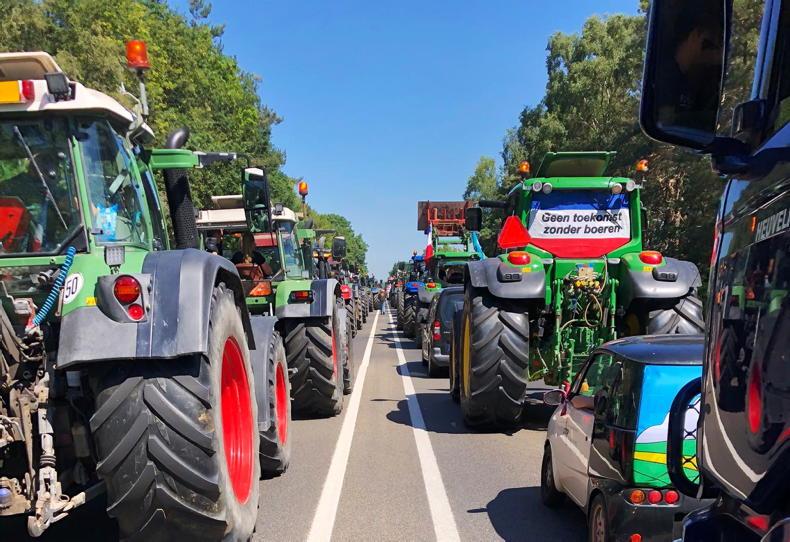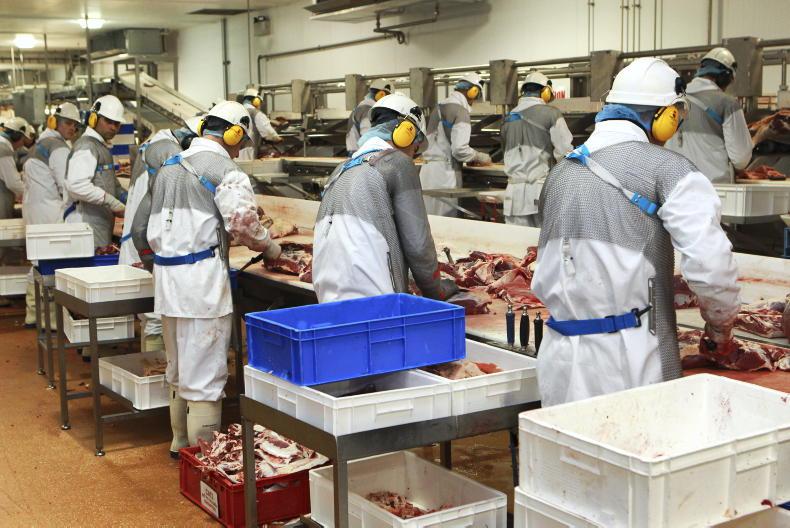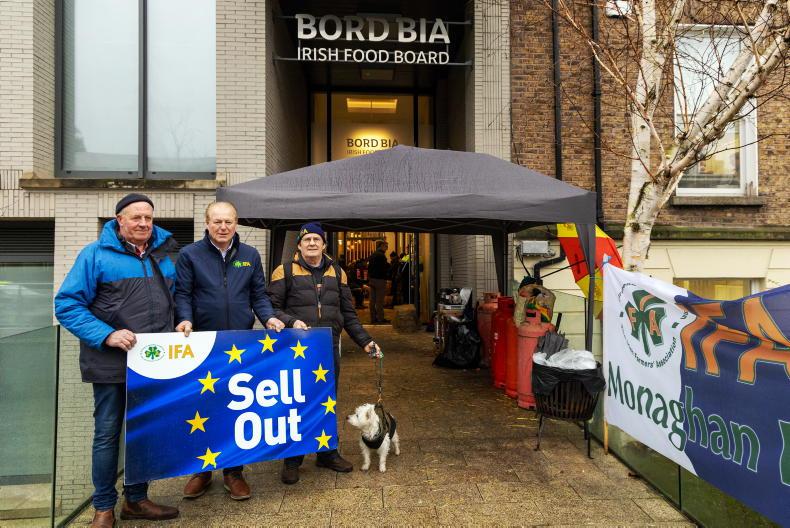Thousands of farmers across Europe are taking to the streets in protest against soaring input costs and climate measures being imposed by governments.
Dutch farmers are into their second week of protests, with thousands expected to participate in a national strike this Friday. Anger is spreading into Germany, Italy and Poland, where farmers have also staged demonstrations.
The protests come as a European Commission report predicts that cereal, milk and beef production will be down in 2022 compared to last year.
Negotiations on Ireland’s carbon reduction targets continue, with a landing zone for agriculture now expected to be decided by the end of July.

Thousands of Dutch farmers have joined tractor blockades in response to strict environmental measures from their government. \ Pieter Sikkema
Industry sources told the Irish Farmers Journal that a compromise target for agriculture is expected to end up between 24% and 26% – midway between the original 22% to 30% range. The KPMG report commissioned by the Irish Farmers Journal shows a target of 30% would blow a €3.8bn hole in the rural economy.
There are growing tensions within Government in relation to the targets and increased awareness of the fragility of the current coalition majority. Rural backbenchers feel they can rock the boat and this could prove a barrier to more stringent climate targets being pushed through the Dáil.
Meanwhile, anger is also building among farmers over comments made by Minister for the Environment Eamon Ryan around lower cattle numbers and an increase in anaerobic digesters.
Macra president John Keane has warned that young farmers “won’t tolerate” any cattle herd cuts, while INHFA president Vincent Roddy said any cuts are “absolutely unacceptable”.
ICSA leader Dermot Kelleher called for “common sense” on emissions reduction targets.
Thousands of farmers across Europe are taking to the streets in protest against soaring input costs and climate measures being imposed by governments.
Dutch farmers are into their second week of protests, with thousands expected to participate in a national strike this Friday. Anger is spreading into Germany, Italy and Poland, where farmers have also staged demonstrations.
The protests come as a European Commission report predicts that cereal, milk and beef production will be down in 2022 compared to last year.
Negotiations on Ireland’s carbon reduction targets continue, with a landing zone for agriculture now expected to be decided by the end of July.

Thousands of Dutch farmers have joined tractor blockades in response to strict environmental measures from their government. \ Pieter Sikkema
Industry sources told the Irish Farmers Journal that a compromise target for agriculture is expected to end up between 24% and 26% – midway between the original 22% to 30% range. The KPMG report commissioned by the Irish Farmers Journal shows a target of 30% would blow a €3.8bn hole in the rural economy.
There are growing tensions within Government in relation to the targets and increased awareness of the fragility of the current coalition majority. Rural backbenchers feel they can rock the boat and this could prove a barrier to more stringent climate targets being pushed through the Dáil.
Meanwhile, anger is also building among farmers over comments made by Minister for the Environment Eamon Ryan around lower cattle numbers and an increase in anaerobic digesters.
Macra president John Keane has warned that young farmers “won’t tolerate” any cattle herd cuts, while INHFA president Vincent Roddy said any cuts are “absolutely unacceptable”.
ICSA leader Dermot Kelleher called for “common sense” on emissions reduction targets.










SHARING OPTIONS